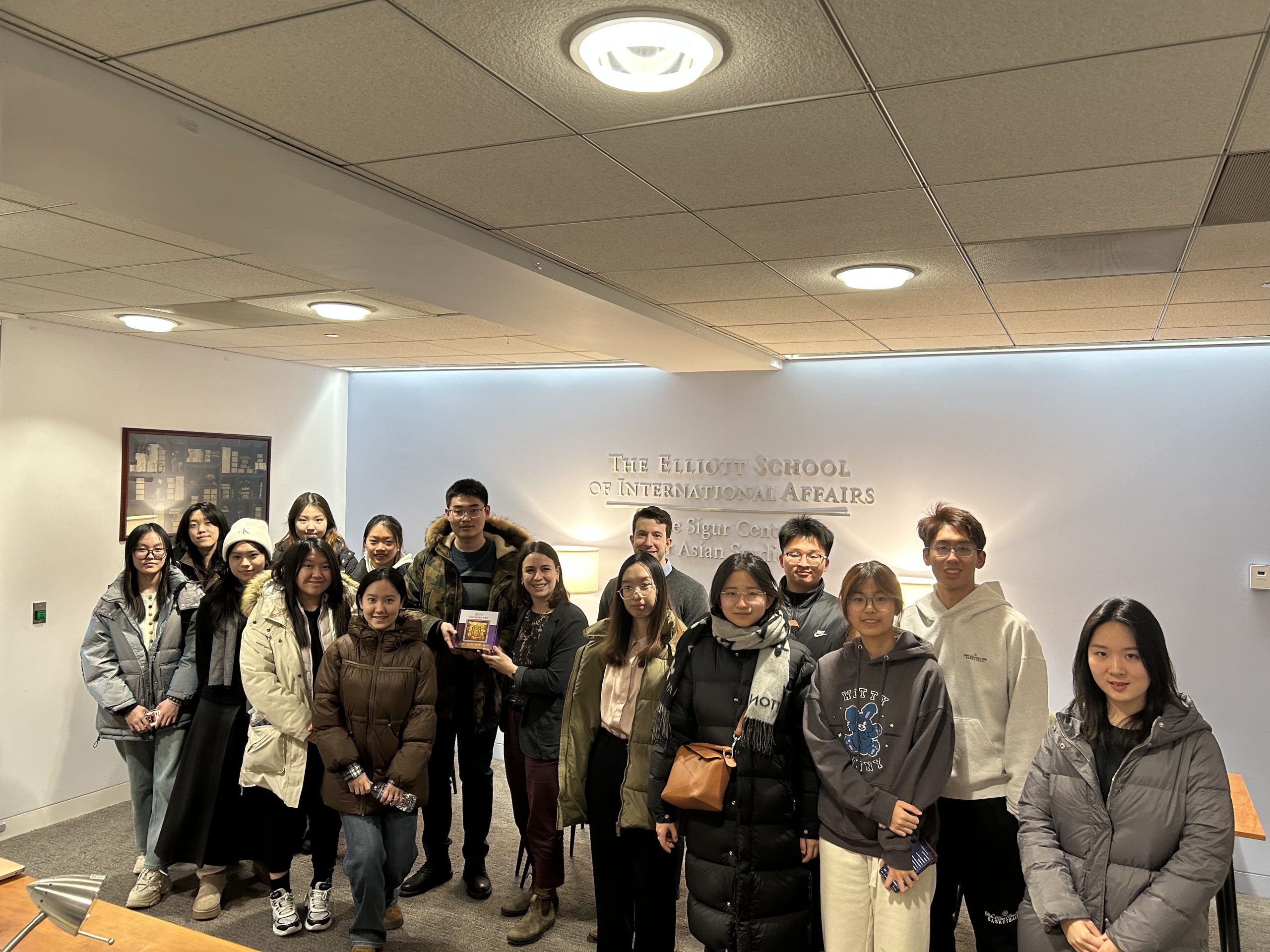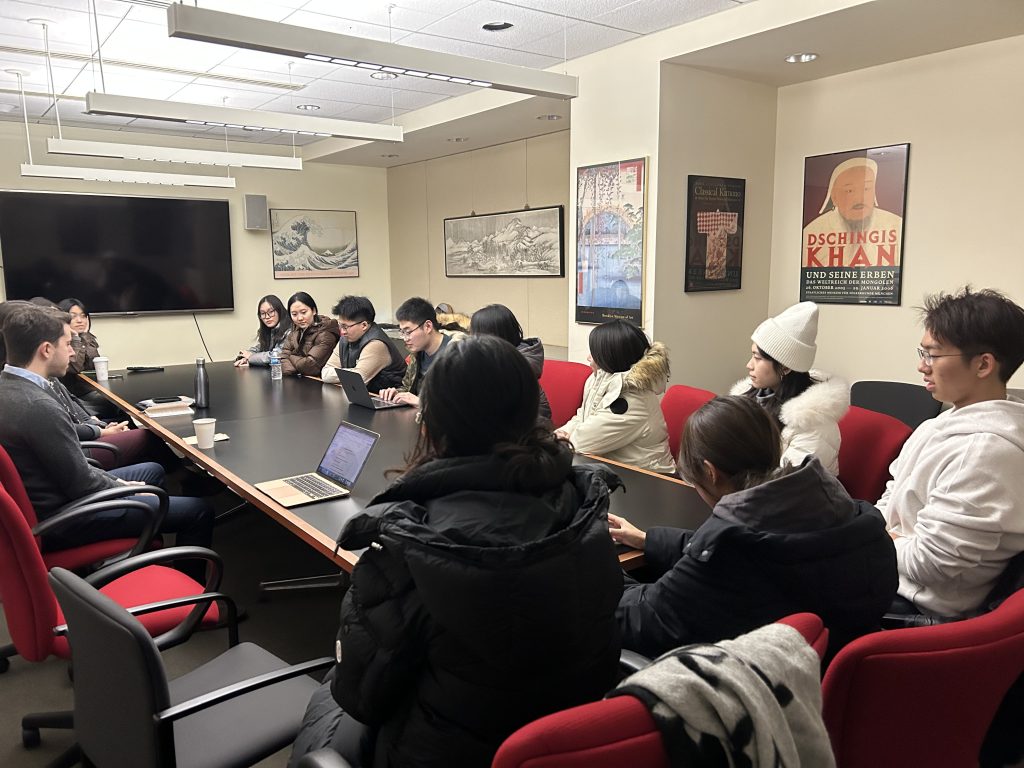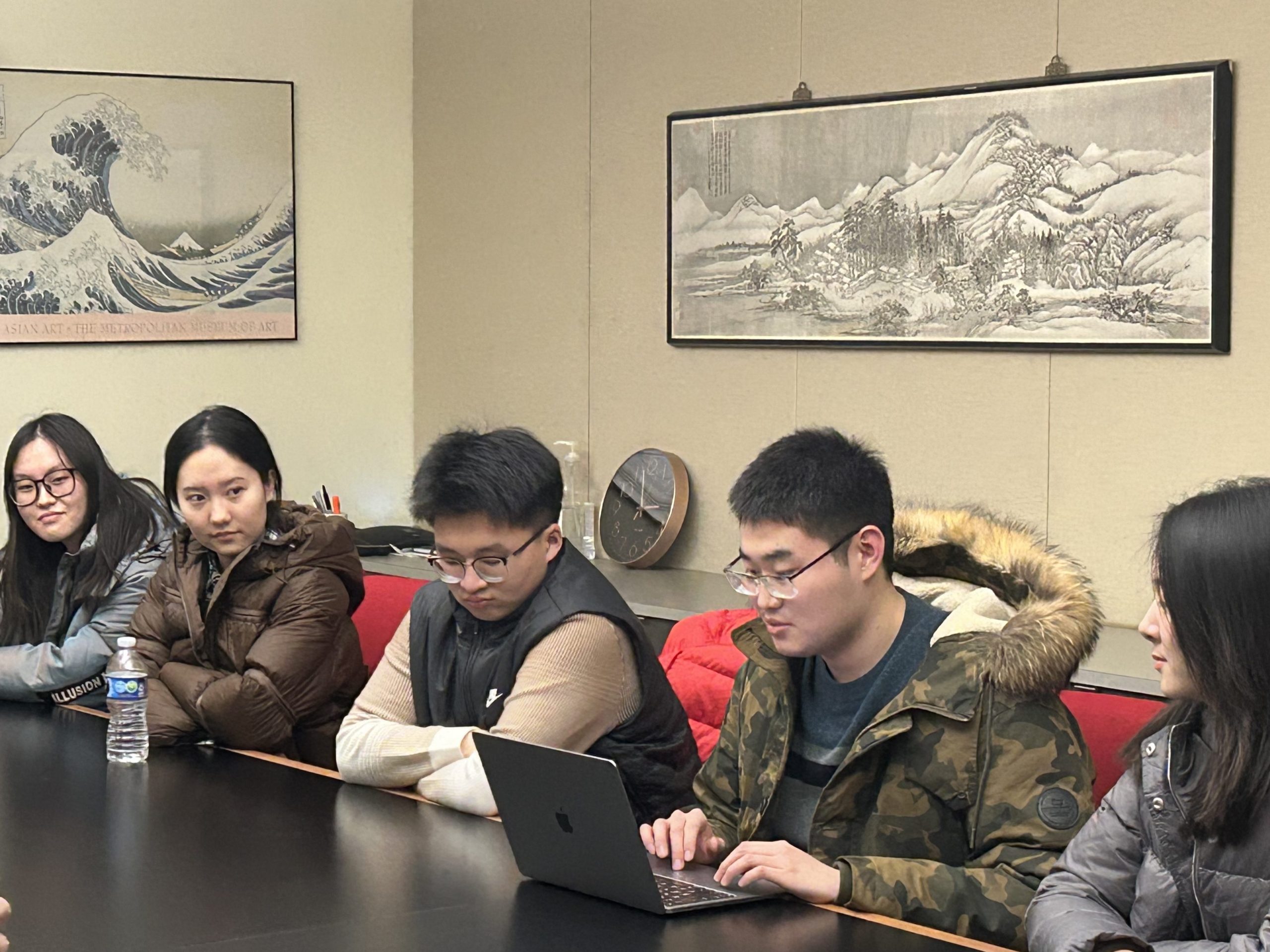On January 15, USCET hosted a 13-member student delegation from Tsinghua University aimed to foster cross-cultural dialogue and deepen mutual understanding between Chinese and American youth. Their goals included exploring current U.S.-China relations, sharing perspectives on people-to-people communication, and examining the role of younger generations in contributing to future bilateral relations. For many in the delegation, this was their first visit to the United States, offering them an exciting opportunity to explore American culture and hear the concerns and motivations of American youths. The group brought diverse academic backgrounds, with students majoring in fields such as international relations, animation, philosophy, law, Japanese, and economics.

USCET Executive Director Rosie Levine welcomed the delegation and provided an overview of USCET’s history and commitment to promoting U.S.-China relations and understanding through education and exchange for the next generation. She also introduced USCET’s “Students Finding Common Ground” Project, now in its second year, which encourages collaborative problem-solving to strengthen U.S.-China relations. Richard Haddock, the Assistant Director of the Sigur Center for Asian Studies at George Washington University, also participated in the meeting to share his insights on the role of public diplomacy in fostering cross-cultural communication and shared human needs. He highlighted the diversity within the U.S. population, noting that Americans from different demographics and educational backgrounds may hold a wide range of perspectives on China and the future of U.S.-China relations.

The delegation engaged in a lively discussion with USCET and guest speakers about challenges and opportunities in U.S.-China relations, including trade policies under the Trump administration, education systems, and cultural exchange through social media platforms like TikTok and RedNotes. Students expressed a range of viewpoints, including optimism about increased people-to-people interactions and cultural exchanges as well as their concerns about political challenges impacting education and bilateral collaboration. For example, one student pointed out the growing challenges STEM students face in obtaining visas, which could potentially impact their educational opportunities in the United States. Reflecting on their in-person exchange in the U.S., many students shared that it was a meaningful and unique opportunity to engage with USCET and other American institutions, allowing them to gain firsthand insights into U.S.-China relations and how they might contribute to its future.
The session concluded with a strong emphasis on the importance of people-to-people communication in bridging the gap between the U.S. and China and fostering mutual understanding among young people. Both students and speakers underscored the potential of educational exchanges and shared cultural experiences for shaping U.S.-China relations. Towards the end of the discussion, the delegation reflected optimism about the role of youth and scholars in shaping a more connected and collaborative future.

About the “Students Finding Common Ground” Project
The US-China Education Trust, in cooperation with Tsinghua University and DC-area schools, is launching the Spring 2025 Common Ground project to advance our mission of bringing American and Chinese students together. Through virtual group work and mentorship, participants collaborate on finding solutions for critical global issues like climate change, peacebuilding, education, and public health. This experiential program fosters meaningful U.S.-China dialogue, allowing both Chinese and American students to gain valuable connections and insights in the U.S.-China field.
Learn more about the project here.
